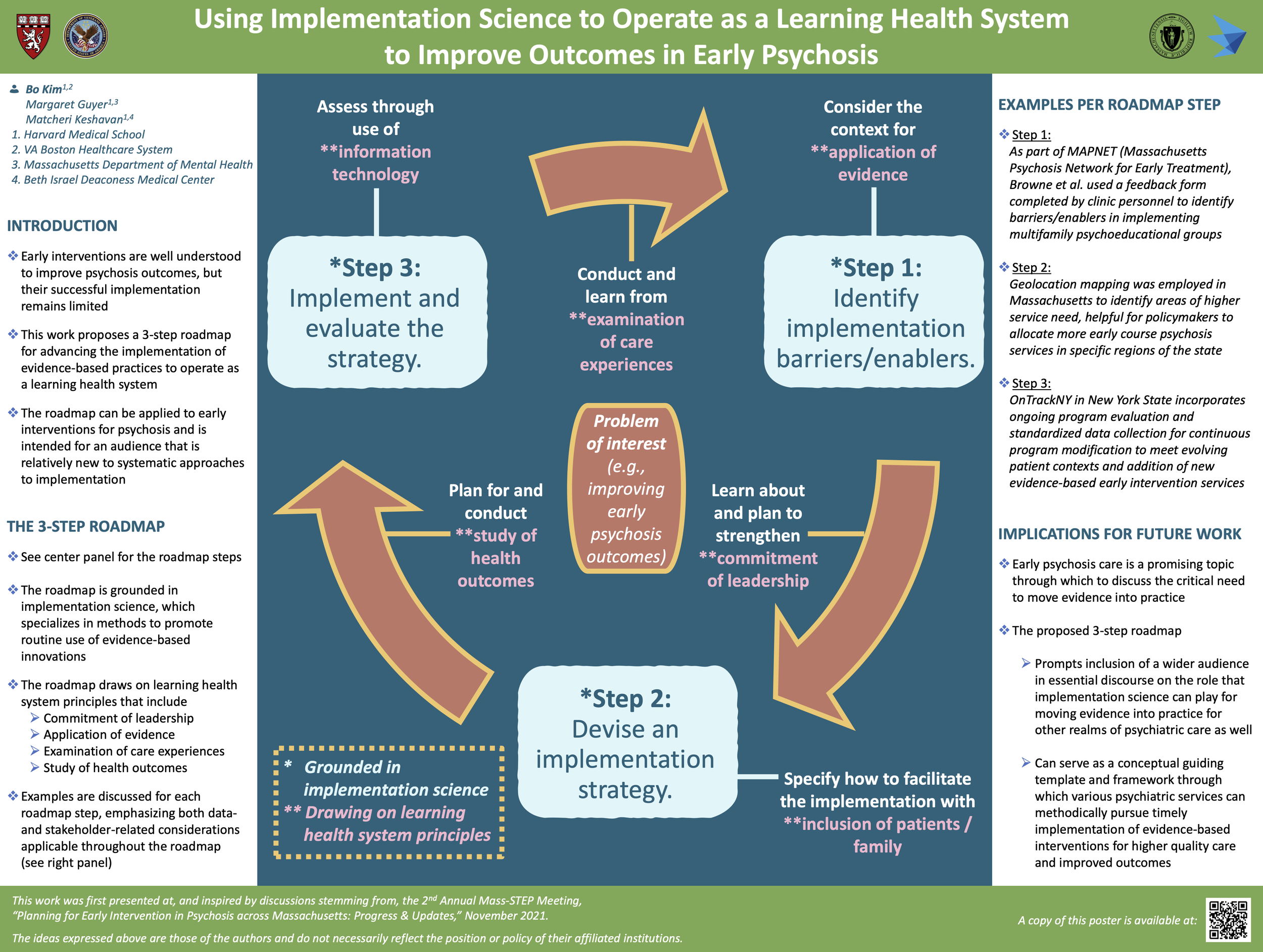Using Implementation Science to Operate as a Learning Health System to Improve Outcomes in Early Psychosis
Bo Kim (1,2), Margaret Guyer (1,3), Matcheri Keshavan (1,4)
1. Harvard Medical School
2. VA Boston Healthcare System
3. Massachusetts Department of Mental Health
4. Beth Israel Deaconess Medical Center
Abstract
Background: Early interventions are well understood to improve psychosis outcomes, but their successful implementation remains limited. This work introduces a three-step roadmap for advancing the implementation of evidence-based practices to operate as a learning health system, which can be applied to early interventions for psychosis and is intended for an audience that is relatively new to systematic approaches to implementation.
Methods: The roadmap is grounded in implementation science, which specializes in methods to promote routine use of evidence-based innovations. The roadmap draws on learning health system principles that call for commitment of leadership, application of evidence, examination of care experiences, and study of health outcomes. Examples are discussed for each roadmap step, emphasizing both data- and stakeholder-related considerations applicable throughout the roadmap.
Results: Early psychosis care is a promising topic through which to discuss the critical need to move evidence into practice. Despite remarkable advances in early psychosis interventions, population-level impact of those interventions is yet to be realized. By providing an introduction to how implementation science principles can be operationalized in a learning health system and sharing examples from early psychosis care, this work prompts inclusion of a wider audience in essential discourse on the role that implementation science can play for moving evidence into practice for other realms of psychiatric care as well.
Conclusions: The proposed roadmap can serve as a conceptual guiding template and framework through which various psychiatric services can methodically pursue timely implementation of evidence-based interventions for higher quality care and improved outcomes.

